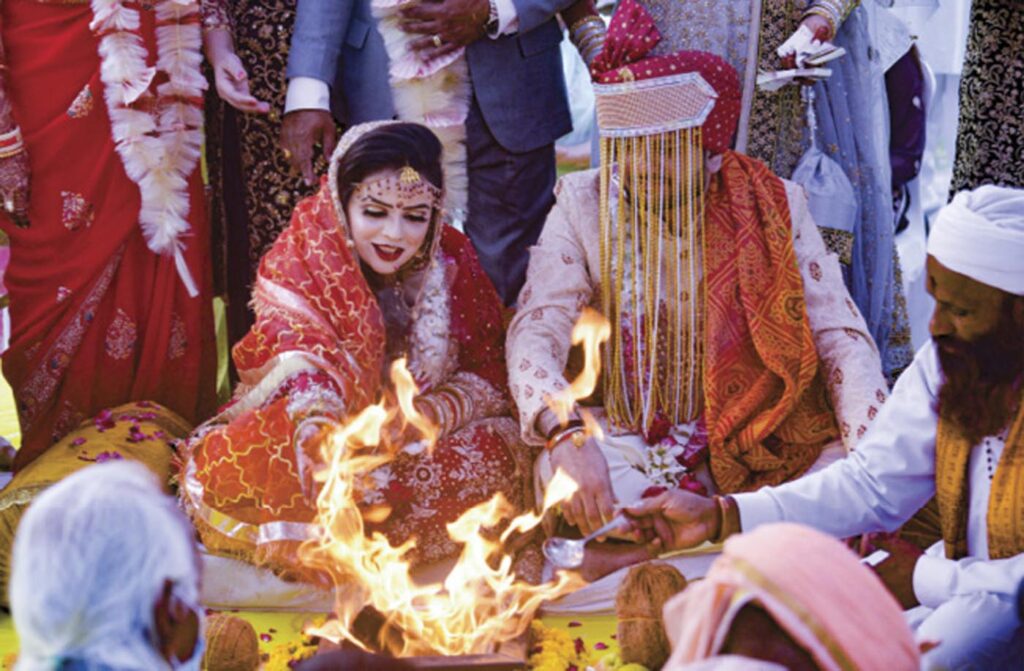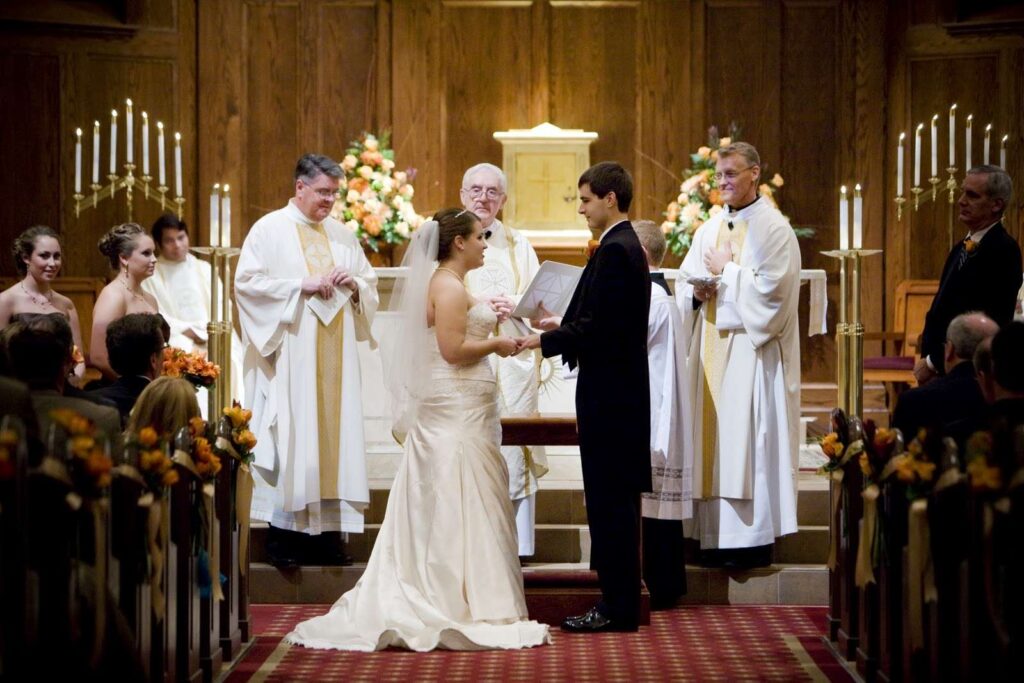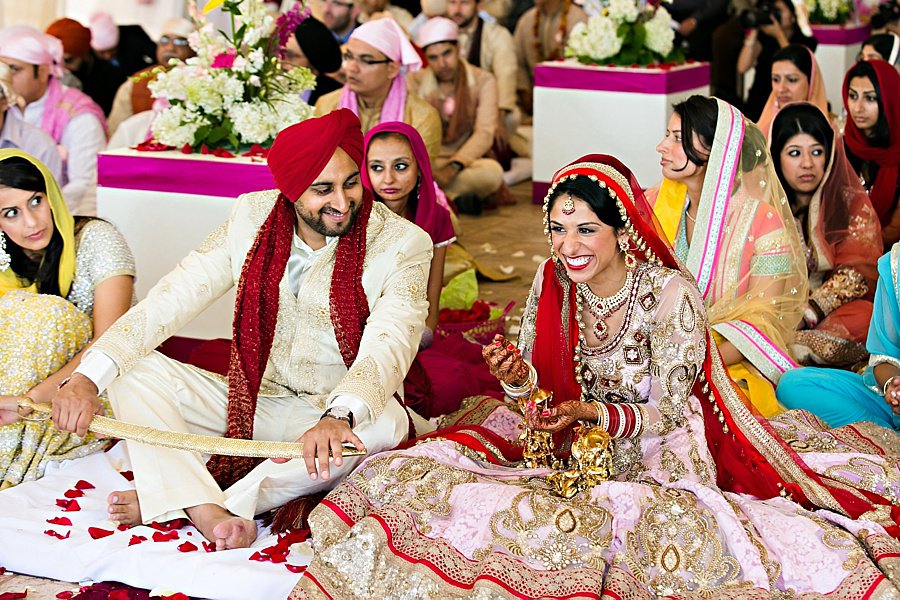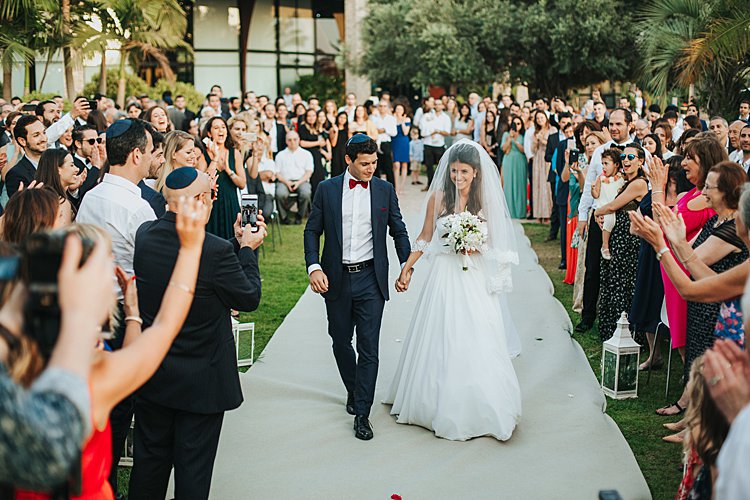Legal and Cultural Implications of e-marriages: A Global Perspective"
e marriages
e-marriages" is a term that refers to marriages that are conducted entirely online, without the couple ever meeting in person. This type of marriage has become increasingly common in the digital age, as people have more access to online communication tools and are more comfortable with conducting important transactions and interactions online.
The Rise of e-marriages: How Technology is Changing the Way We Get Married"
E-marriages typically involve the couple communicating via email, messaging, video chat, or other online platforms. They may exchange photos, videos, and other personal information to get to know each other better. Once the couple decides to get married, they may fill out online forms, obtain legal documents, and even have a virtual wedding ceremony.
One of the benefits of e-marriages is that they can be conducted quickly and efficiently, without the need for extensive travel or expensive wedding planning. They also offer greater flexibility for couples who may live in different parts of the world, or who have busy schedules that make it difficult to meet in person.
However, e-marriages also raise some concerns about the validity and legality of online marriages. In some countries, online marriages are not legally recognized, and couples may need to meet in person to obtain a marriage license. Additionally, there are concerns about the potential for fraud or deception in online relationships, and the need for proper safeguards and verification procedures to ensure that both parties are entering into the marriage willingly and with full understanding.
Overall, e-marriages represent a new and evolving trend in modern relationships and marriage, and their popularity is likely to continue to grow in the future as technology advances and people become more comfortable with conducting important transactions and interactions online.
ONLINE MARRIAGE IN DIFFERENT CULTURAL AND RELIGIOUS PRACTICES WITHIN DIFFERENT COMMUNITIES
- Christian marriage: This is the most common type of marriage in the UK and is recognized under English law. It involves two people getting married in a church or other religious venue and is governed by Christian customs and traditions.
Civil marriage: This type of marriage is also recognized under English law and involves two people getting married in a non-religious ceremony. It can be performed in a registry office or any licensed venue and does not involve any religious customs or traditions.
Muslim marriage: This type of marriage is governed by Islamic law and involves a contract between the bride and groom, as well as a religious ceremony. It is recognized under English law if it meets certain legal requirements.
Hindu marriage: This type of marriage is governed by Hindu customs and traditions and involves various ceremonies, including the exchange of garlands and the tying of a sacred thread. It is recognized under English law if it meets certain legal requirements.
Sikh marriage: This type of marriage is governed by Sikh customs and traditions and involves a religious ceremony known as Anand Karaj. It is recognized under English law if it meets certain legal requirements.
Jewish marriage: This type of marriage is governed by Jewish customs and traditions and involves a religious ceremony known as Kiddushin. It is recognized under English law if it meets certain legal requirements.
1.Islam marriage
In Islam, there are mainly two types of marriages:
Nikah: This is a permanent marriage where a man and a woman enter into a contract to live as husband and wife. The Nikah contract involves the payment of Mahr (a bride’s dowry) by the groom to the bride, and the agreement to certain terms and conditions, such as the right of the wife to be provided with a home, maintenance, and support. This is the most common type of marriage in Islam.
Mut’ah: This is a temporary marriage where a man and a woman enter into a contract for a fixed period of time. Mut’ah marriages are not as common as Nikah marriages and are mostly practiced by Shia Muslims. The contract includes a specific timeframe and a set amount of money that the groom will pay the bride as compensation. The marriage automatically ends when the time period expires.
It is important to note that there are different opinions among scholars and sects regarding the legality and acceptability of Mut’ah marriages. Sunni Muslims generally do not consider Mut’ah marriages to be valid, while Shia Muslims allow it under certain circumstances.
Additionally, it is worth noting that some Muslims may choose to have a civil marriage in addition to the Nikah contract, which may be required by local laws in some countries. However, the Nikah contract is considered the primary and most important form of marriage in Islam.
Nikah is the Islamic term for marriage, which is a legal and social contract between a Muslim man and a Muslim woman. The Nikah ceremony is an important part of Islamic tradition and involves several steps, including the proposal (ijab), acceptance (qabul), recitation of specific verses from the Quran, and the payment of a bride’s dowry or Mahr.
Nikah is the Islamic term for marriage, which is a legal and social contract between a Muslim man and a Muslim woman. The Nikah ceremony is an important part of Islamic tradition and involves several steps, including the proposal (ijab), acceptance (qabul), recitation of specific verses from the Quran, and the payment of a bride’s dowry or Mahr.

The Nikah ceremony typically takes place in the presence of a Muslim cleric, witnesses, and family members of the bride and groom. During the ceremony, the bride and groom exchange vows and agree to live as husband and wife according to Islamic law.
The Nikah contract includes specific terms and conditions agreed upon by the couple, such as the right of the wife to be provided with a home, maintenance, and support. The contract is signed by the bride, groom, and witnesses, and is considered a binding legal agreement.
Nikah is considered to be a sacred bond between the couple, and it is recognized as a religious duty in Islam for those who are able to enter into marriage. The marriage is considered to be a lifelong commitment, and divorce is permitted but discouraged except in certain circumstances.
Love, Faith, and Commitment: Understanding the Spiritual Dimension of Muslim Marriages"
Muslim marriage in the UK is governed by Islamic law and can vary depending on the cultural and religious practices of different Muslim communities. Here are a few examples of the different types of Muslim marriage that exist in different communities in the UK:
Sunni Muslim marriage: This type of Muslim marriage is based on the teachings of the Sunni branch of Islam, which is the largest branch in the world. It involves the exchange of vows and rings in the presence of witnesses, and is typically conducted by an Imam or other religious leader.
Shia Muslim marriage: This type of Muslim marriage is based on the teachings of the Shia branch of Islam, which is the second largest branch in the world. It involves the exchange of vows and rings in the presence of witnesses, and is typically conducted by a Mullah or other religious leader.
Nikah marriage: This is the most common type of Muslim marriage in the UK and is recognized under English law if it meets certain legal requirements. It involves the signing of a marriage contract between the bride and groom, and a religious ceremony conducted by an Imam or other religious leader.
Misyar marriage: This type of Muslim marriage is practiced in some Muslim communities and involves a less formal agreement between the bride and groom, with the husband having fewer financial responsibilities towards the wife than in a traditional marriage.
Mutah marriage: This type of Muslim marriage is practiced in some Shia communities and involves a temporary marriage contract with a specified end date. It is not recognized under English law.
2.Hinduism, marriage
In Hinduism, there are several types of marriages. Here are some of the most common types:
Arranged Marriage: This is the most common type of marriage in Hinduism, where the families of the bride and groom arrange the marriage. In arranged marriages, the families consider various factors such as caste, social status, education, and horoscopes before finalizing the match.
Love Marriage: This is a type of marriage where the couple falls in love and decides to get married, without the involvement of their families. Love marriages are becoming more common in modern times, especially in urban areas.
Inter-caste Marriage: This is a type of marriage where the couple belongs to different castes. Inter-caste marriages were traditionally not accepted in Hindu society, but with modernization and changing attitudes, they are becoming more common.
Gandharva Marriage: This is a type of marriage where the couple chooses each other without the involvement of their families. It is considered a love marriage, but without the formal rituals and ceremonies of a traditional Hindu wedding.

Asura Marriage: This is a type of marriage where the bride’s family receives a dowry from the groom’s family. It is considered an inferior form of marriage in Hinduism and is not as common as arranged marriages.
- Rakshasa Marriage: This is a type of marriage where the groom forcefully abducts the bride against her will. It is considered an unrighteous and unethical practice in Hinduism and is not recognized as a valid form of marriage
It is important to note that the types of marriages in Hinduism can vary based on regional and cultural differences, and many modern Hindus may choose to blend different types of marriages based on their personal beliefs and preferences.
Exploring Hindu Marriages: Culture, Religion, and Regional Variations"
Arranged marriage: This is the most common type of Hindu marriage in the UK and involves the parents or relatives of the bride and groom arranging the marriage. It typically involves the exchange of gifts, the signing of a marriage contract, and a religious ceremony conducted by a Hindu priest.
Love marriage: This type of Hindu marriage is less common than arranged marriage, but is becoming more accepted in some Hindu communities in the UK. It involves the bride and groom choosing each other as partners, rather than the parents or relatives making the decision.
Brahmin marriage: This type of Hindu marriage is based on the customs and traditions of the Brahmin caste, which is the highest caste in the Hindu social hierarchy. It involves a religious ceremony conducted by a Brahmin priest, and typically includes several rituals and customs that are unique to the Brahmin community.
Arya Samaj marriage: This type of Hindu marriage is based on the teachings of the Arya Samaj movement, which emphasizes the principles of monotheism and rationalism. It involves a religious ceremony that is simpler than traditional Hindu marriage, and is conducted by an Arya Samaj priest.
Gujarati marriage: This type of Hindu marriage is based on the customs and traditions of the Gujarati community, which is one of the largest Hindu communities in the UK. It typically involves a religious ceremony conducted by a Hindu priest, and includes several unique customs and rituals that are specific to the Gujarati community.
3.Christianity, marriage
In Christianity, there are several types of marriages, but the specific types may vary based on denomination and cultural practices. Here are some of the most common types:
Sacramental Marriage: This is a type of marriage that is recognized as a sacrament by the Catholic and Orthodox Churches. In this type of marriage, the couple enters into a covenant with God and each other, and the marriage is considered a holy and lifelong commitment.
Civil Marriage: This is a type of marriage that is recognized by the state and not by any religious organization. It is a legal contract between two people, and the ceremony is performed by a government official or civil authority.
Traditional Christian Marriage: This is a type of marriage that involves a religious ceremony performed by a minister, priest, or pastor. It is often held in a church and involves traditional Christian vows and readings from the Bible.
Interfaith Marriage: This is a type of marriage where the couple comes from different religious backgrounds. Interfaith marriages can be challenging due to differences in beliefs and practices, but some couples may choose to blend their beliefs and practices or compromise to make the marriage work.

Covenant Marriage: This is a type of marriage that is recognized by some Christian denominations as a commitment to a lifelong and monogamous relationship. It involves signing a legally binding contract that limits the grounds for divorce and requires counseling before divorce can be considered.
Common-Law Marriage: This is a type of marriage recognized in some states where a couple lives together and presents themselves as a married couple without going through a formal ceremony.
It is important to note that the types of marriages in Christianity can vary based on cultural and regional differences, as well as denominational practices.
Christian marriage, emphasizing its roots in the teachings of the Bible and the importance of the sacrament within the Christian faith.
The Sacrament of Marriage: Exploring the Biblical Foundations and Spiritual Significance of Christian Marriage” is a main title that highlights the importance of marriage in the Christian faith. In Christianity, marriage is considered a sacrament, a holy and sacred act that signifies the union of two people in the presence of God.
The title suggests that the article will delve into the biblical foundations of Christian marriage, exploring how the teachings of the Bible inform and shape Christian views on marriage. It also implies that the article will examine the spiritual significance of marriage within the Christian faith, including its role in promoting personal growth, strengthening the family unit, and deepening one’s relationship with God.
By using the term “sacrament”, the title emphasizes the religious and theological dimensions of Christian marriage, framing it as a sacred act that is imbued with spiritual meaning and significance. This highlights the unique nature of Christian marriage as a covenantal relationship that is blessed by God and recognized as a vital component of Christian life and practice.
4.Sikhism, marriage
In Sikhism, there is only one type of marriage, which is called Anand Karaj. Anand Karaj is a Punjabi term that means "blissful union" and refers to the Sikh wedding ceremony.
In Sikhism, there is only one type of marriage, which is called Anand Karaj. Anand Karaj is a Punjabi term that means “blissful union” and refers to the Sikh wedding ceremony.
Anand Karaj is a sacred and solemn ceremony that is considered to be a commitment between two individuals and the Guru Granth Sahib, the holy scripture of Sikhism. The ceremony is usually performed in a Gurdwara (Sikh temple) and is officiated by a Granthi (Sikh priest).
During the Anand Karaj ceremony, the couple sits in front of the Guru Granth Sahib, and hymns and prayers are recited. The couple takes four rounds around the holy book, while the Granthi reads out four shabads (verses) that explain the meaning and importance of marriage in Sikhism. After the four rounds, the couple is considered to be united as one soul in two bodies.
Anand Karaj is considered to be a sacred and lifelong commitment, and divorce is not encouraged in Sikhism. However, if the marriage is not working out, it is permitted under certain circumstances, such as infidelity or domestic violence.


The Sikh Marriage Ceremony and the Importance of Union with Waheguru".including the religious ceremony known as Anand Karaj, and the spiritual significance of marriage within Sikhism.
Anand Karaj: This is the most common type of Sikh marriage in the UK and involves a religious ceremony conducted in a Gurdwara (Sikh temple) by a Sikh priest. It includes the exchange of vows, the tying of the wedding knot, and the recitation of religious hymns.
Love marriage: This type of Sikh marriage is becoming more common in some Sikh communities in the UK and involves the bride and groom choosing each other as partners, rather than the parents or relatives making the decision.
Punjabi marriage: This type of Sikh marriage is based on the customs and traditions of the Punjabi community, which is one of the largest Sikh communities in the UK. It typically involves a religious ceremony conducted by a Sikh priest, and includes several unique customs and rituals that are specific to the Punjabi community.
Amritdhari marriage: This type of Sikh marriage involves two Sikhs who have taken Amrit (baptism) and follow the Khalsa code of conduct. The religious ceremony is conducted by a Sikh priest and includes several unique customs and rituals that are specific to the Amritdhari community.
Mixed-faith marriage: This type of Sikh marriage involves a Sikh and a partner of a different faith. It is not a separate legal category of marriage, but rather a term used to describe a civil marriage that involves two people from different religious backgrounds.
Sikhism places great importance on marriage as a sacred union between two individuals. The Sikh marriage ceremony, known as Anand Karaj, involves a series of rituals and customs that emphasize the spiritual significance of the union.
The ceremony is conducted in the presence of the Guru Granth Sahib, the Sikh holy book, and involves the exchange of vows and the tying of a special knot known as the “four pheras”. The couple also shares a communal meal known as langar with their families and the wider community, symbolizing the importance of unity and equality.
In Sikhism, marriage is seen as a way to achieve union with Waheguru, the divine creator. The couple is encouraged to work together to build a strong, loving, and supportive relationship that will allow them to grow spiritually and serve others.
Sikhism also emphasizes the importance of gender equality in marriage, with both partners expected to contribute equally to the relationship and the wider community. This includes sharing household duties and responsibilities, as well as supporting each other’s personal and professional aspirations.
Overall, Sikhism views marriage as a sacred and meaningful union between two individuals, based on mutual respect, love, and a shared commitment to living according to Sikh principles and values.
5.Judaism, marriage
In Judaism, there are several types of marriages, but the specific types may vary based on religious denomination, cultural practices, and geographical location. Here are some of the most common types:
Orthodox Jewish Marriage: This is a type of marriage that is recognized by Orthodox Judaism and is considered to be the most traditional form of Jewish marriage. It involves a religious ceremony performed by a rabbi, where the couple exchanges rings, recites traditional vows, and signs a ketubah (marriage contract).
Reform Jewish Marriage: This is a type of marriage that is recognized by Reform Judaism and is considered to be a more modern form of Jewish marriage. It may involve a religious or secular ceremony, and the couple may choose to write their own vows and create their own marriage contract.
Interfaith Marriage: This is a type of marriage where one partner is Jewish and the other partner is of a different faith. Interfaith marriages are not universally accepted in Judaism, but some rabbis may perform such ceremonies.
Same-Sex Marriage: This is a type of marriage that is recognized by some Jewish denominations and is performed in accordance with the beliefs and practices of those denominations.

- Conservative Jewish Marriage: This is a type of marriage that is recognized by Conservative Judaism and is considered to be a middle ground between Orthodox and Reform Judaism. It involves a religious ceremony performed by a rabbi, where the couple exchanges rings, recites traditional vows, and signs a ketubah.
It is important to note that the types of marriages in Judaism can vary based on cultural and regional differences, as well as denominational practices. Additionally, Jewish law recognizes the importance of divorce and provides guidelines for how it should be handled.
FLOWER ARRANGE
CEREMONIES
DIFFERENT CAKE
HAPPY COUPLES
Are You Attending?
E-Marriages and the Law: What You Need to Know Before Saying 'I Do' Virtually".
E-marriage, or online marriage, is becoming increasingly popular in the digital age. With the rise of social media platforms like Instagram, it's now possible to connect with people from all over the world and build meaningful relationships.
